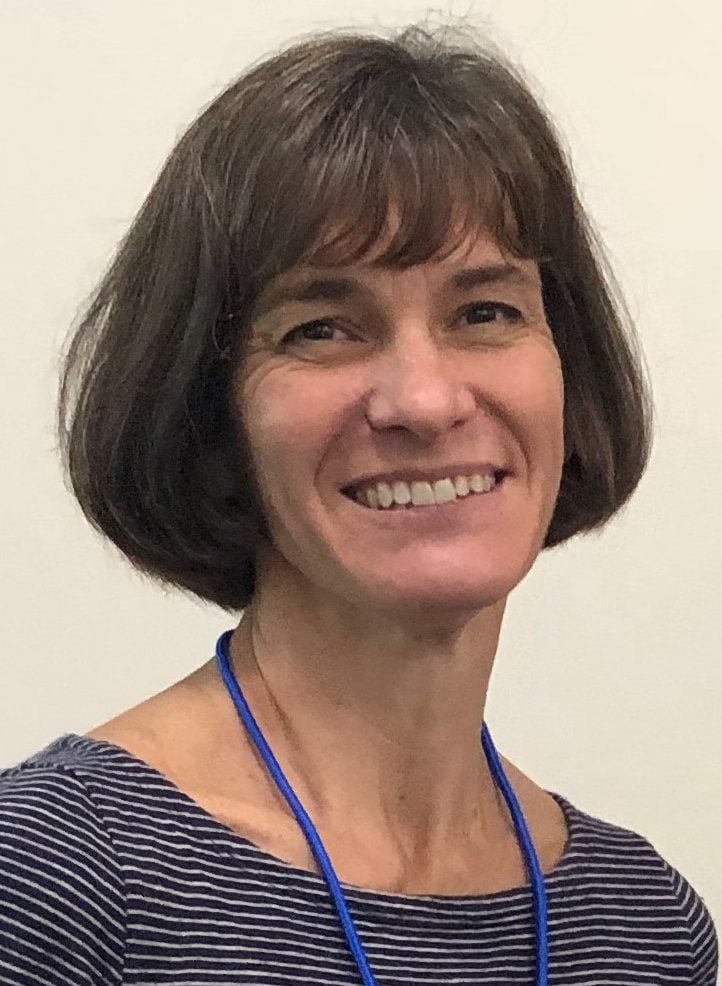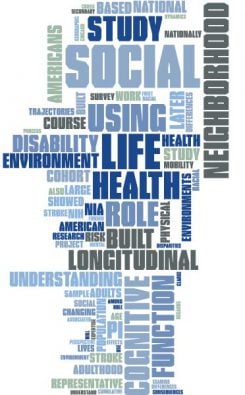Philippa Clarke
Research Professor and Director, Social Environment and Health Program
Professor, Department of Epidemiology
Research Professor, Survey Research Center, Institute for Social Research
Research Projects
Rehabilitation Research and Training Center (RRTC) on Promoting Healthy Aging for People with Long-Term Physical Disabilities
(Administration for Community Living / DHHS 90RTHF0001-01-00)
The aim of this National Rehabilitation Research and Training Center (RRTC) is to identify environmental factors that are associated with healthy aging for individuals with long-term physical disabilities from diverse backgrounds, particularly those from low income and racial / ethnic minority communities. To date, there has been little research on environmental factors to guide interventions and treatments to improve the health of persons aging with long-term physical disabilities. This project will begin to fill this gap in knowledge by examining the role of characteristics in the social and built environment as they interact with underlying impairments and activity limitations to either hinder or promote the full participation of individuals with physical disabilities in society. The end goal of the Center is to develop interventions to modify environmental factors to enhance the health, functioning and participation of individuals aging with long-term physical disabilities. The Center serves as a national resource center by providing information, training, and technical assistance to a variety of groups / stakeholders. We engage key stakeholder groups, particularly disability and aging related organizations, to bridge programs and practices for older adults and people with disabilities and maximize the relevance and usability of the new knowledge generated by the RRTC.
https://cdh.medicine.umich.edu/research/ideal-rrtc
A National Neighborhood Data Resource to Understand Inequities in the Health and Socioeconomic Impacts of COVID-19 in the United States
(NIH/NINR; U01NR020556)
The consequences of the COVID-19 pandemic have been unequally felt by individuals and communities across the United States. To understand these patterns, we will create, integrate, and share data on neighborhood characteristics, both before and since the pandemic, that can be readily linked to existing survey or cohort studies at various levels of geography. This national neighborhood data (NANDA) resource will support the scientific community in understanding the mechanisms that may convey risk and resilience, particularly in underserved and vulnerable populations, and will allow us to more effectively prepare for the next public health emergency.
https://seh.isr.umich.edu/signature-projects/nanda
Publications
- Demidenko MI, Huntley ED, Du L,…Clarke PJ, Keating DP. Individual and community level developmental adversities: associations with marijuana and alcohol use in late-adolescents and young adults. J Youth Adolesc. 2024;53(4):799-813. doi:10.1007/s10964-023-01881-9
- Kim MH, Dunkle R, Clarke PJ. Neighborhood resources and risk of cognitive decline among a community-dwelling long-term care population in the U.S. Public Health Pract. 2023;6:100433. doi:10.1016/j.puhip.2023.100433
- Jones MG, Clarke PJ, Meshesha HS, Mulhorn KA, Traci MA, Nieuwenhuijsen ER. COVID-19, disability, and the international classification of functioning, disability and health: a scoping review of early-stage pandemic response. AJPM Focus. 2023;3(1):100152. doi:10.1016/j.focus.2023.100152
- Rollings KA, Noppert GA, Griggs JJ, Melendez RA, Clarke PJ. Comparison of two area-level socioeconomic deprivation indices: implications for public health research, practice, and policy. PLoS One. 2023;18(10):e0292281. doi:10.1371/journal.pone.0292281
- Twardzik E, Falvey JR, Clarke PJ, Freedman VA, Schrack JA. Public transit stop density is associated with walking for exercise among a national sample of older adults. BMC Geriatr. 2023;23(1):596. doi:10.1186/s12877-023-04253-x
- Noppert GA, Duchowny KA, Stebbins R, Aiello AE, Dowd JB, Clarke P. Biological expressions of early life trauma in the immune system of older adults. PLoS One. 2023;18(6):e0286141. doi:10.1371/journal.pone.0286141
- Khan AM, Lin P, Kamdar N, Mahmoudi E, Clarke PJ. Continuity of care in adults aging with cerebral palsy and spina bifida: the importance of community healthcare and socioeconomic context. Disabilities. 2023;3(2):295-306. doi:10.3390/disabilities3020019
- Onishchenko R, Clarke PJ, Marshall C, Wyant KJ, Kotagal V. Neighborhood social determinants of health in patients seen in neurology movement disorders clinics. Neurol Clin Pract. 2023;13(2):e200142. doi:10.1212/CPJ.0000000000200142
- Yu W, Esposito M, Li M, Clarke PJ, Judd S, Finlay J. Neighborhood ‘disamenities’: local barriers and cognitive function among Black and white aging adults. BMC Public Health. 2023;23(1):197. doi:10.1186/s12889-023-15026-x
- Veinot TC, Clarke PJ, Romero DM, et al. Equitable research PRAXIS: A framework for health informatics methods. Yearb Med Inform. 2022;31(1):307-316. doi:10.1055/s-0042-1742542



